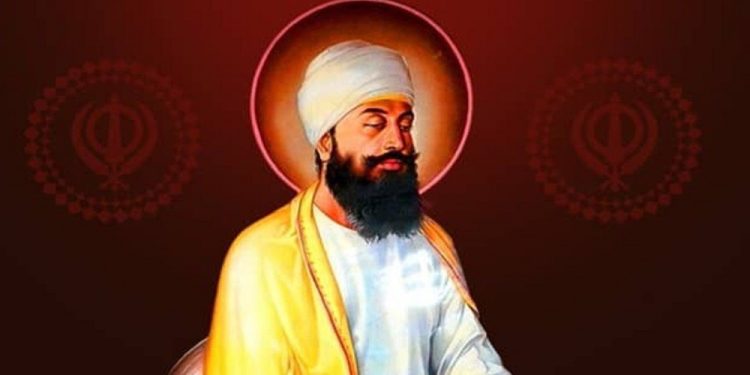
Martyrdom Of Guru Tegh Bahadur Sahib
One of the more important events in Sikh history, and one that had a profound effect on the direction Sikhism took from that moment and into the future, was the Martyrdom of Guru Tegh Bahadur Sahib. Guru Tegh Bahadur was the 9th Sikh Guru who made the supreme sacrifice for the protection of one of mankind’s most basic rights: the right for a person to choose and freely practice their religion without hindrance or interference.
After he was sentenced to death, he recited the Japji—one of the most important scriptures of Sikhism—and was decapitated with a single blow delivered by the executioner. His death is now an event that is observed by Sikh devotees all over the world.
A Biography Of Guru Tegh Bahadur
Guru Tegh Bahadur was born in 1621 in Amritsar, Punjab, India. After the 8th Guru, Hari Krishan, told his followers that his successor would be found in the village of Bakala, a deputation went to the village and found 22 claimants.
A wealthy Sikh merchant by the name of Bhai Makhan Shah sought out Tegh Bahadur when he realized that this man displayed none of the greed or self-aggrandizement that the other claimants possessed. Tegh Bahadur was then proclaimed to be the 9th Sikh Guru.
Unfortunately, Guru Tegh Bahadur would run into problems with Mughal authorities when he gave shelter and aid to Hindu holy men from Kashmir. These holy men sought out his help after they were ordered by Emperor Aurangzeb to accept Islam.
Under the encouragement of his son, the Guru told the Hindus that they should inform the emperor that they would accept Islam if the Guru became a Muslim. With no intention of converting to Islam, he then headed to Delhi to defend the Hindus before Aurangzeb and was promptly arrested under the order of the emperor while he was on his way.
He was escorted by five Sikhs to Delhi and was imprisoned in the city’s fortress. While he was in prison, he was given an ultimatum: accept Islam or be tortured. It was an ultimatum that he refused.
The emperor was enraged by his answer, so he ordered the Guru to either embrace Islam or perform some miracle that would show the power of Sikhism. The emperor told him that if he were to do any one, he would receive great rewards. However, if he refused to do either, then he would be put to death.
The Guru instead chose to accept his death sentence. At his execution, he recited the Japji before he was decapitated with a single blow. According to tradition, a loyal Sikh carried his head back to Anandpur, and another one took his body back to his home and cremated it. The spot of the cremation is now a Sikh shrine.
Guru Tegh Bahadur died on November 24, 1675. It has now become an important holiday that is observed by Sikh devotees all over the world to remember the importance of religious freedom and to commemorate the 9th Guru’s dedication to this principle.








